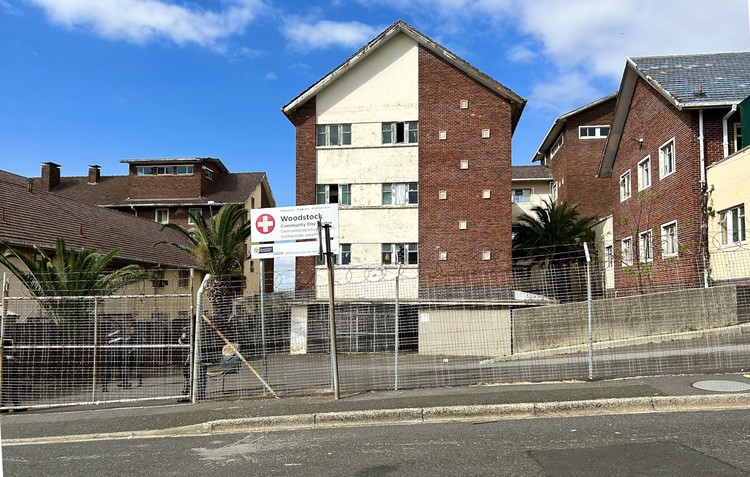Social housing in Woodstock: City wins heritage hearing
Woodstock residents intend to appeal, saying they support social housing but some green space needed
The City plans to develop social housing at the old Woodstock Hospital site. The Woodstock Residents Association’s appeal to keep an adjacent site as public open space has been dismissed by the Heritage Western Cape Appeals Committee. Archive photo: Matthew Hirsch
- The City of Cape Town is planning to build social housing on the site of the former Woodstock hospital
- It also wants to build on an adjacent open site.
- The Woodstock Residents Association is happy with social housing but says recreational space is also needed.
- Their appeal on the matter was dismissed by Heritage Western Cape’s appeals committee.
An appeal to create public open space adjacent to a proposed social housing development on the site of the former Woodstock Hospital, was on Wednesday dismissed by the Heritage Western Cape appeals committee.
The City of Cape Town plans to develop social housing at the former hospital, as well as on an adjacent open site on Earl Street. The old hospital has been occupied since 2017 by people in need of housing, and renamed Cissie Gool House.
The City has stated it intends to build about 700 social housing units on the old hospital site, and a further 160 social housing units on the Earl Street site, which is currently open ground.
Both sites required a Heritage Impact Assessment (HIA) as part of the Environmental Impact Assessment. The HIAs are governed by Heritage Western Cape (HWC). In May the HIA approved the Woodstock Hospital site, but with conditions related to building design, and that the Earl Street Site be converted into public open space. Concurrently, the HIA for the Earl Street site was dismissed.
The Earl Street decision was then appealed by the City of Cape Town, while the Woodstock Residents Association (WRA) appealed both decisions on the grounds that the hospital and Earl Street sites needed to be cojoined as a single application.
The City and WRA appeals were initially meant to be heard by the HWC appeals committee in July, but according to HWC CEO Michael Janse van Rensburg the hearing was postponed at the City’s request, and reconvened on Wednesday.
On Wednesday WRA treasurer and heritage and planning subcommittee chair Ute Kuhlmann said they were in favour of social housing in Woodstock, but “the amount of social housing immediately adjacent on these two properties is impacting negatively on heritage resources and is therefore not acceptable”.
Kuhlmann argued there was a limited number of green spaces in the area, thus those that existed needed to be protected.
Reiterating the WRA supported social housing in Woodstock, she said the social housing developments currently in the pipeline would result in at least 1,000 more people needing recreational facilities in Woodstock while those that existed were already insufficient for current residents.
She said in the City’s own draft Local Spatial Development Framework, it acknowledged open spaces in the area were limited, and one of Woodstock’s challenges was the poorly functioning parks and public open spaces.
But the City, represented by advocate Coriaan de Villiers and heritage expert Stephen Townsend, argued that it was correct to cojoin both sites in the application, and criticised the WRA’s bid for public open space.
Townsend said: “You are weighing up social housing against public open space even though heritage is not affected. This is a thumbsuck that you prefer to have public open space compared to social housing. Woodstock has long been identified for some social housing, and it’s happening in other parts of the city as well.”
De Villiers argued that from a heritage perspective, the plans for the Earl Street site did not negatively effect the Victorian semi-detached cottages on Melbourne Street abutting the proposed Earl Street development.
She further argued that if there was a negative impact, “the social good may even outweight the negative impact on heritage resources”.
Although the WRA objected to the City bringing new evidence to the hearing, which they had not been given access to, and asked the HWC committee to disregard it, the committee chair Gregory Ontong said they couldn’t “unsee it”.
Ontong, in his decision, said The Earl Street appeal bought by the City of Cape Town was upheld. He said the development may proceed, subject to the necessary building plans being approved, with particular attention to be given to the interface with Victorian cottages on Melbourne.
After the meeting, Kuhlmann told GroundUp they believed there were procedural grounds to appeal the decision.
She reiterated that the Woodstock community which was in favour of social housing, but wanted to preserve “some of the little green, open space” in the neighbourhood.
Next: Lottery official’s bank accounts frozen because of suspicious payments
Previous: Families displaced by World Cup occupy RDP houses in Durban
© 2023 GroundUp. This article is licensed under a Creative Commons Attribution-NoDerivatives 4.0 International License.
You may republish this article, so long as you credit the authors and GroundUp, and do not change the text. Please include a link back to the original article.
We put an invisible pixel in the article so that we can count traffic to republishers. All analytics tools are solely on our servers. We do not give our logs to any third party. Logs are deleted after two weeks. We do not use any IP address identifying information except to count regional traffic. We are solely interested in counting hits, not tracking users. If you republish, please do not delete the invisible pixel.



